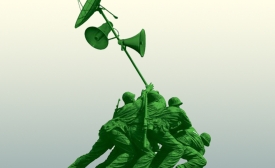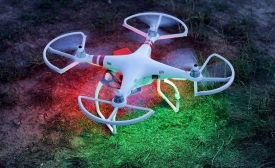information warfare

A book review of Philip Seib's Information at War: Journalism, Disinformation, and Modern Warfare by ACPD Executive Director Vivian S. Walker.

An interview with Brigadier General Nuno Lemos Pires, National Defense Policy Deputy Director at the Ministry of Defense of Portugal.

Shaun Riordan on social media algorithms and information warfare.

Either Facebook starts sharing more information about how its algorithms work, or social media platforms will be reduced to battlefields for 21st century warfare.

A look at how new tools such as satellite remote sensing, virtual reality, bots and apps impact the practice of public diplomacy.

Shaun Riordan discusses why adding an extra €1 million per year to the East Stratcom Unit won't be much help.
It’s 1 pm, and Current Time America is on the air. The program is one of two stateside productions of Current Time, a 24-7 Russian-language TV channel headquartered in Prague. But this isn’t some Euro import or a start-up aimed at Russian expats—it’s run by the U.S. government. Launched in February, the project is a collaboration between two venerable broadcasters, Voice of America and Radio Free Europe/Radio Liberty. After Russia annexed Crimea, says Daisy Sindelar, the network’s director, “we realized that we were losing a messaging war.”
In addition to formal public diplomacy mouthpieces like Russia Today and Sputnik, Russia employs armies of paid trolls and botnets to generate false information that can later be circulated and legitimated as if it were true. Then, in 2016, Russian military intelligence went a step further, by hacking into the private network of the Democratic National Committee, stealing information, and releasing it online to damage Hillary Clinton’s presidential candidacy.







